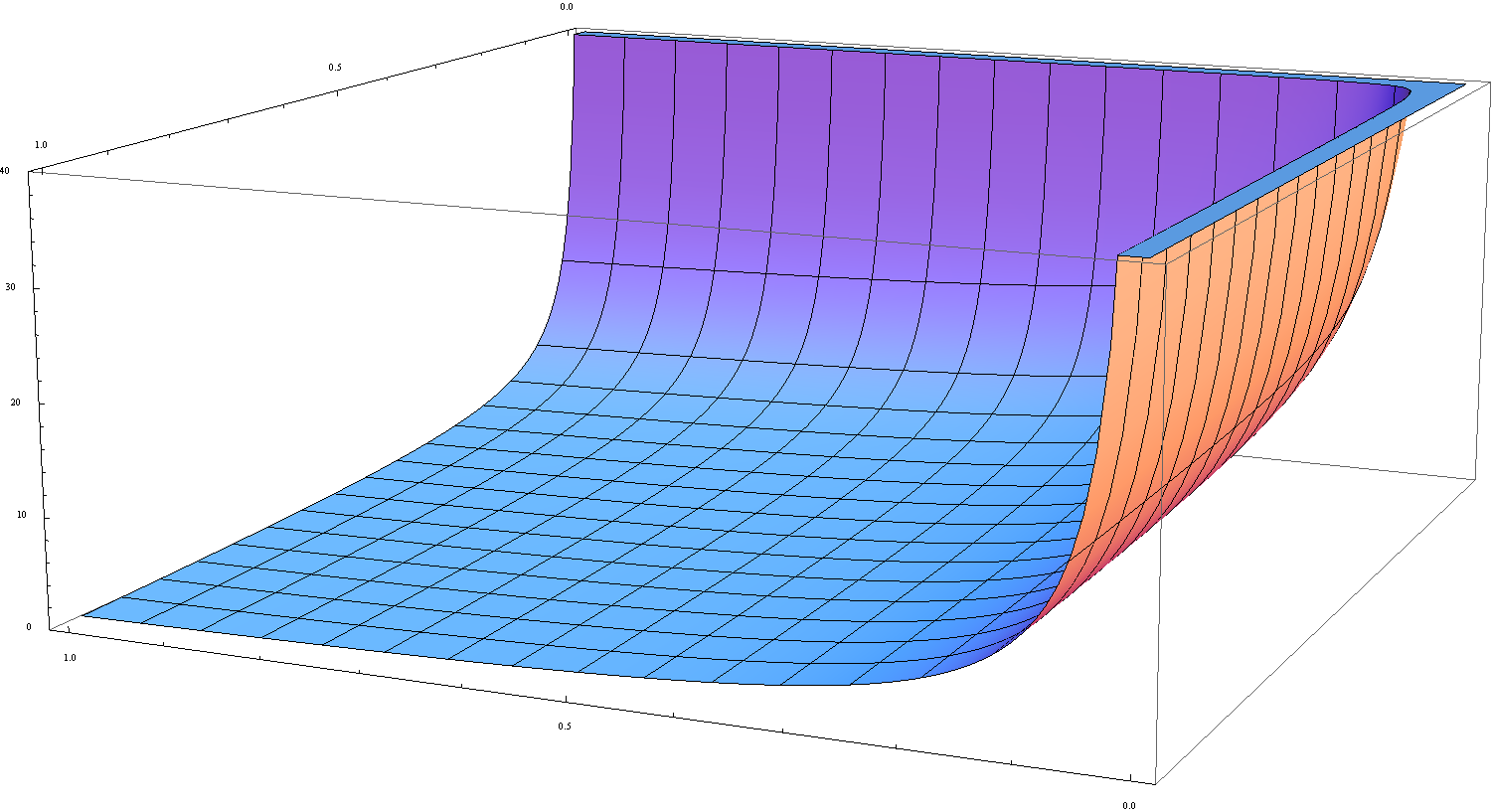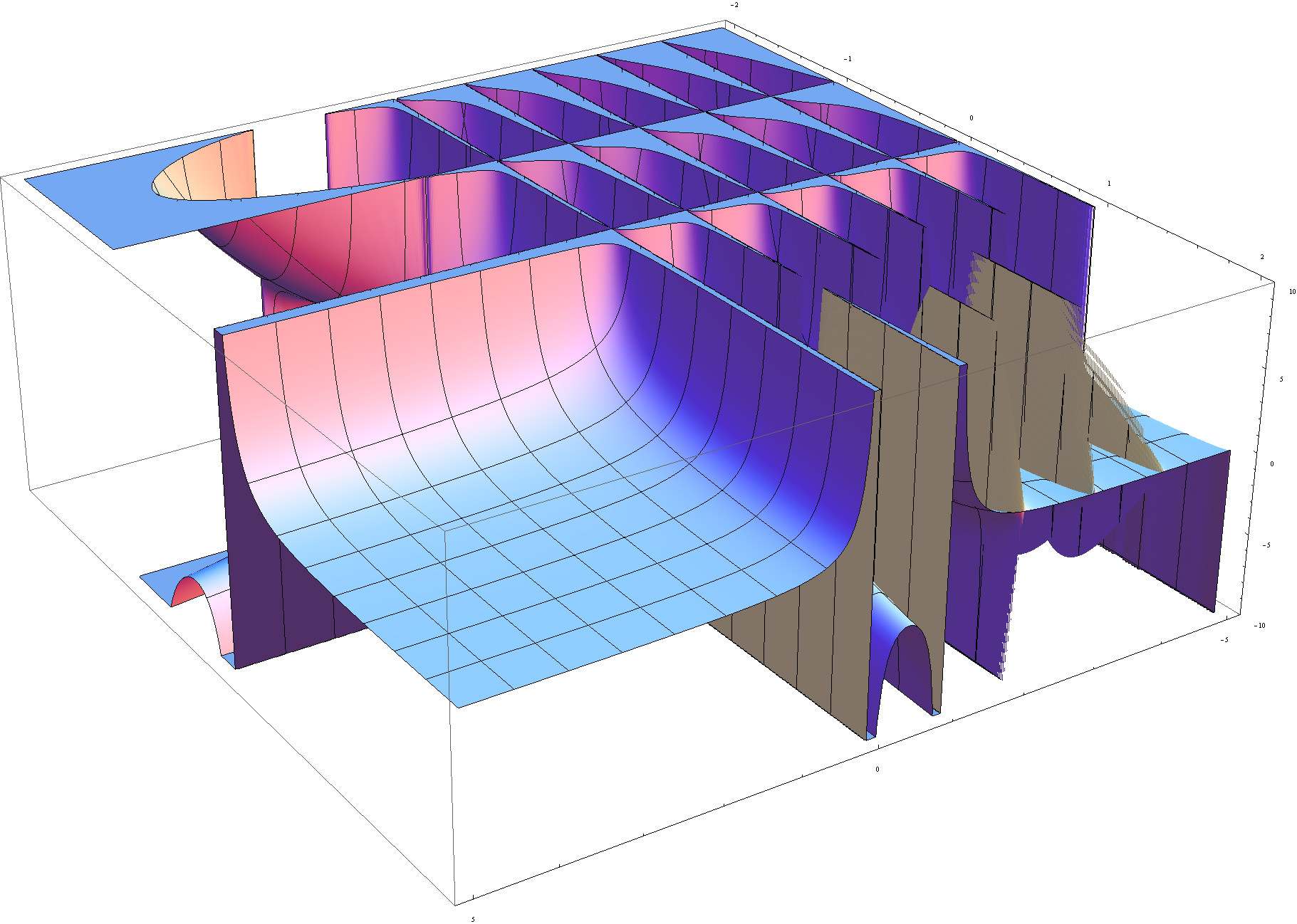Difference between revisions of "Beta"
(→Videos) |
|||
| Line 45: | Line 45: | ||
Bell. Special Functions <br /> | Bell. Special Functions <br /> | ||
[http://web.mst.edu/~lmhall/SPFNS/spfns.pdf Special functions by Leon Hall] | [http://web.mst.edu/~lmhall/SPFNS/spfns.pdf Special functions by Leon Hall] | ||
| + | |||
| + | [[Category:SpecialFunction]] | ||
Revision as of 18:26, 24 May 2016
The beta function $B$ (note: $B$ is capital $\beta$ in Greek) is defined by the formula $$B(x,y)=\displaystyle\int_0^1 t^{x-1}(1-t)^{y-1}dt.$$
Contents
Properties
Theorem: $B(x,y)=B(y,x)$
Proof: █
Theorem: (i) $B(x+1,y)=\dfrac{x}{x+y} B(x,y)$
(ii) $B(x,y+1)=\dfrac{y}{x+y}B(x,y)$
Proof: █
Theorem
The following formula holds: $$\dfrac{\partial}{\partial x} B(x,y)=B(x,y) \left( \dfrac{\Gamma'(x)}{\Gamma(x)} - \dfrac{\Gamma'(x+y)}{\Gamma(x+y)} \right) = B(x,y)(\psi(x) - \psi(x+y)),$$ where $B$ denotes the Beta function, $\Gamma$ denotes the gamma function, and $\psi$ denotes the digamma function.
Proof
References
Theorem
The following formula holds: $$B(x,y)=\dfrac{\Gamma(x)\Gamma(y)}{\Gamma(x+y)},$$ where $B$ denotes the beta function and $\Gamma$ denotes the gamma function.
Proof
References
- 1964: Milton Abramowitz and Irene A. Stegun: Handbook of mathematical functions ... (previous) ... (next): $6.2.2$
Theorem
The following formula holds: $$B(x,y)=2 \displaystyle\int_0^{\frac{\pi}{2}} (\sin t)^{2x-1}(\cos t)^{2y-1} \mathrm{d}t,$$ where $B$ denotes the beta function, $\sin$ denotes the sine function, and $\cos$ denotes the cosine function.
Proof
From the definition, $$B(x,y)=\displaystyle\int_0^1 \xi^{x-1} (1-\xi)^{y-1} \mathrm{d}\xi.$$ Let $\xi=\sin^2(t)$. Then $d\xi = 2\sin(t)\cos(t)$. Also if $\xi=0$ then $0=\sin^2(t)$ implies that $t=\arcsin(0)=0$ and if $\xi=1$, then $1=\sin^2(t)$ implies $t=\arcsin(1)=\dfrac{\pi}{2}$. Therefore using substitution and the Pythagorean identity for sin and cos, $$\begin{array}{ll} B(x,y) &= \displaystyle\int_0^1 \xi^{x-1}(1-\xi)^{y-1} \mathrm{d}\xi \\ &= \displaystyle\int_0^{\frac{\pi}{2}} (\sin(t))^{2x-2} (1-\sin^2(t))^{y-1} 2 \sin(t)\cos(t) \mathrm{d}t \\ &= 2 \displaystyle\int_0^{\frac{\pi}{2}} (\sin(t))^{2x-1} (\cos(t))^{2y-1} \mathrm{d}t, \end{array}$$ as was to be shown. █
References
- 1953: Arthur Erdélyi, Wilhelm Magnus, Fritz Oberhettinger and Francesco G. Tricomi: Higher Transcendental Functions Volume I ... (previous) ... (next): $\S 1.5 (19)$
- 1964: Milton Abramowitz and Irene A. Stegun: Handbook of mathematical functions ... (previous) ... (next): $6.2.1$
Videos
Beta function - Part 1
Beta function
Beta integral function - basic identity
Gamma function - Part 10 - Beta function
Mod-04 Lec-09 Analytic continuation and the gamma function (Part I)
Gamma Function, Transformation of Gamma Function, Beta Function, Transformation of Beta Function
Beta Function - Gamma Function Relation Part 1
Beta Function - Gamma Function Relation Part 2
Beta Integral: Even Powers Of Sine Function
References
Bell. Special Functions
Special functions by Leon Hall

